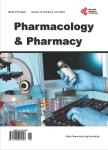Adherence of Community Pharmacies in Riyadh, Saudi Arabia, to Optimal Conditions for Keeping and Selling Good-Quality Medicines
Adherence of Community Pharmacies in Riyadh, Saudi Arabia, to Optimal Conditions for Keeping and Selling Good-Quality Medicines作者机构:Department of Clinical Pharmacy College of Pharmacy King Saud University Riyadh KSA. Department of Drug Management and Policy Graduate School of Natural Science and Technology Kanazawa University Kana- zawa Japan Department of Drug Management and Policy Graduate School of Natural Science and Technology Kanazawa University Kana- zawa Japan Department of Clinical and Hospital Pharmacy College of Pharmacy Taibah University Madinah KSA Department of International Pharmaceutical Sciences Graduate School of Natural Science and Technology Kanazawa University KanazawaJapan
出 版 物:《Pharmacology & Pharmacy》 (药理与制药(英文))
年 卷 期:2013年第4卷第5期
页 面:431-437页
学科分类:1002[医学-临床医学] 100214[医学-肿瘤学] 10[医学]
主 题:Quality of Medicines Substandard Medicine Saudi Arabia Community Pharmacy Quality of Pharmacies
摘 要:Exposure to excessive temperature during distribution or storage has unfavorable consequences on the quality of medicines, particularly in hot climates. This could be one of the possible reasons behind the existence of substandard amoxicillin in community pharmacies in Riyadh, Saudi Arabia. This study explored the conditions under which medicines were kept in a random sample of 181 community pharmacies in Riyadh. The pharmacist in charge in each pharmacy was interviewed and our observations about the quality of storage were recorded. The inspection revealed that in 9% of the sample the readings of the existing room thermometers were 25℃, and that 13% of the sample lacked thermometers. Also in 33% of the sample the readings of the refrigerator thermometers were outside the accepted range, and 7% of the sample lacked refrigerator thermometers. About 15% of pharmacists were not informed about the local regulations of community pharmacy practice, neither before nor after taking up their current positions. Surprisingly, incorrect answers to simple questions about the system were frequently given by the informed pharmacists. Certain aspects of substandard storage conditions existed, in varying degrees, in significant percentages of pharmacies regardless of the pharmacists’ qualifications, experience, or awareness about the local regulations of community pharmacy practice. Stricter monitoring by the authorities regarding the adherence of community pharmacies to optimal conditions of storing medicines is recommended. Continuing education of community pharmacists must also be improved.



